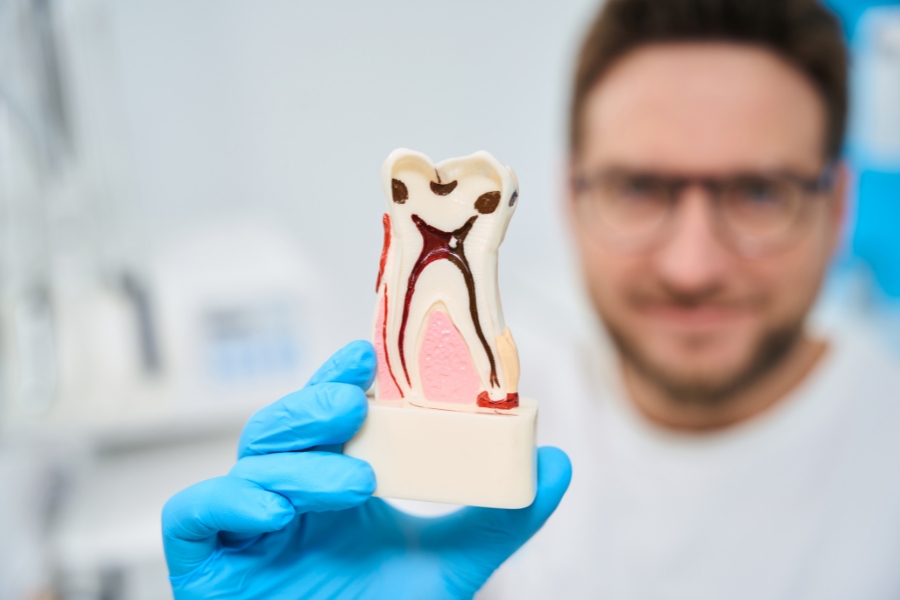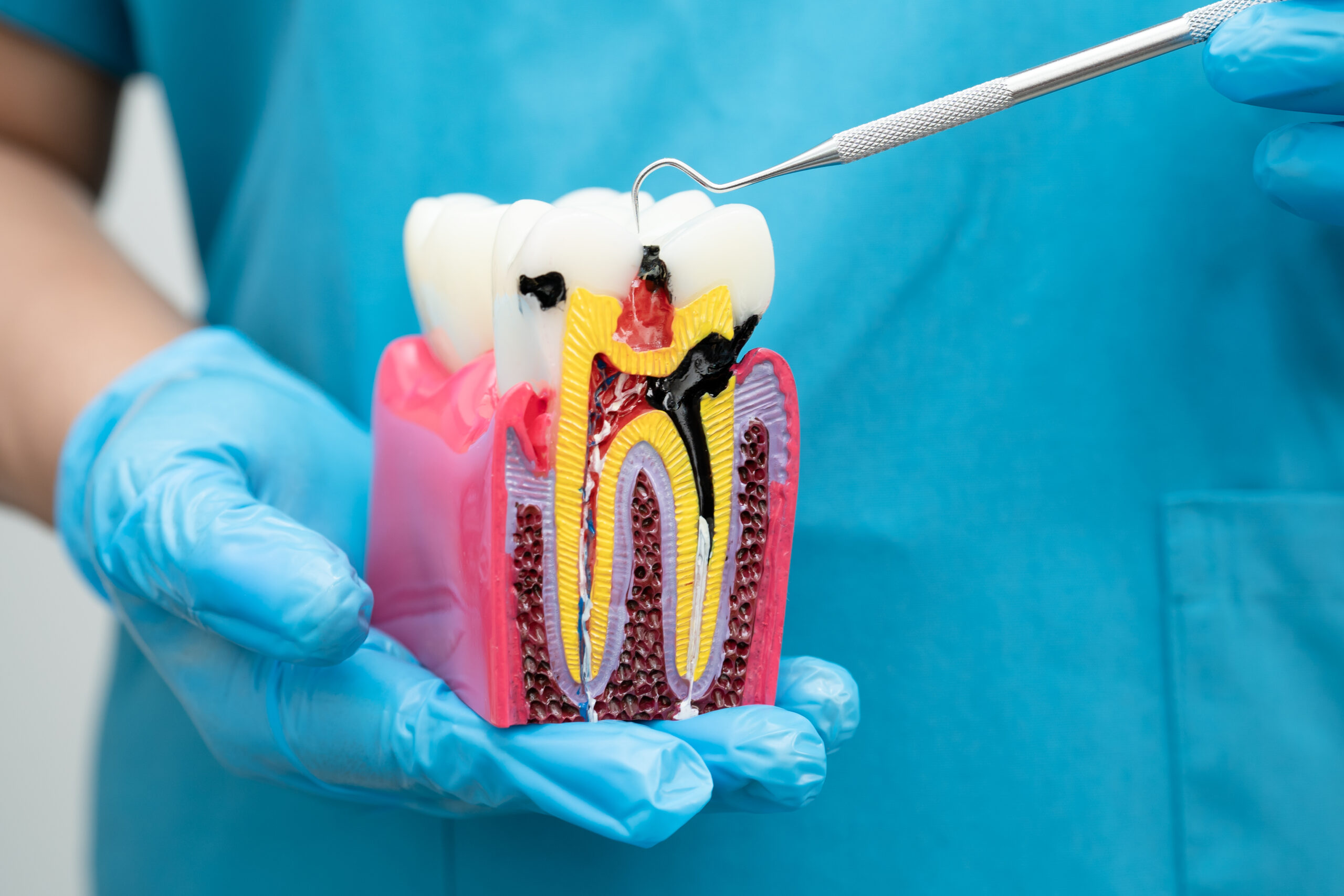What to Do If a Root Canal Gets Infected?

Root canals are dental procedures that save teeth by removing infected pulp, the innermost layer. While they’re a lifesaver for chompers in distress, sometimes the unthinkable happens – an infected root canal. Don’t panic! Here’s what you need to know about recognizing the signs, getting treatment, and saving your smile.
Signs of an Infected Root Canal
Just like any infection, a re-infected root canal comes with some unwelcome guests. Be on the lookout for these symptoms:
- Throbbing Toothache: This is a classic sign, and the pain can be constant or come and go.
- Sensitivity: Your tooth might become hypersensitive to hot and cold, or even feel tender when you bite down.
- Swelling: The gum tissue around the infected tooth may become puffy and red. This can sometimes cause discomfort in your jaw or make it difficult to open your mouth fully.
- Drainage: In some cases, pus may drain from the infected area, often leaving an unpleasant taste in your mouth.
- Fever: A root canal infection can cause a low-grade fever, a sign that your body is fighting off the bacteria.
Don’t Delay, See Your Dentist!
If you experience any of these symptoms, don’t wait – call your dentist immediately. Early diagnosis and treatment are key to saving your tooth and preventing the infection from spreading. Ignoring an infected root canal can lead to serious complications, including bone loss, abscesses, and even tooth loss.
What to Expect at the Dentist
During your appointment, your dentist will ask about your symptoms and examine your mouth. They may also take X-rays to get a better look at the infected area and the surrounding bone. Based on their findings, they’ll recommend the best course of treatment.
Treatment Options for an Infected Root Canal
There are two main treatment options for an infected root canal:
- Root Canal Retreatment: This is essentially a redo of your original root canal. The dentist will reopen the tooth, remove any remaining infected tissue and old filling material, clean and disinfect the canals, and then refill and seal the tooth. Antibiotics may also be prescribed to help clear up any remaining infection.
- Extraction: In some cases, the infection may be too severe, or the tooth may be too damaged for retreatment to be successful. If this is the case, your dentist will recommend extracting the tooth. Don’t worry, modern dentistry offers excellent options for replacing missing teeth, such as implants or bridges.
Recovery Tips for an Infected Root Canal
Following your dentist’s instructions after treatment is crucial for a smooth recovery. Here are some general tips:
- Pain Management: Your dentist may prescribe pain medication to help manage any discomfort you experience after treatment. Over-the-counter pain relievers like ibuprofen or acetaminophen can also be helpful.
- Antibiotics: If prescribed antibiotics, take them exactly as directed by your dentist to ensure the medication is effective.
- Oral Hygiene: Maintain good oral hygiene by brushing twice a day and flossing daily. This helps remove bacteria and promote healing.
- Diet: Stick to a soft diet for the first few days after treatment to avoid irritating the treated area.
Preventing Future Root Canal Infections
While a root canal retreatment can save your tooth, prevention is always better than cure. Here are some tips to help prevent future root canal infections:
- Practice good oral hygiene: Brush twice a day and floss once a day to remove plaque and bacteria from your teeth and gums.
- Regular dental checkups: Visit your dentist for regular checkups and cleanings, allowing them to identify and address any potential problems early on.
- Treat dental issues promptly: Don’t ignore cavities or toothaches. Early intervention can prevent the need for more extensive procedures like root canals.
- Wear a mouthguard: If you play sports or grind your teeth at night, wear a mouthguard to protect your teeth from injury.
Living With a Re-Treated Root Canal
With proper care, a re-treated root canal can last for many years. Be sure to maintain good oral hygiene and schedule regular dental checkups to keep your smile healthy. Remember, early diagnosis and treatment are key to a successful outcome.
If you have any questions or concerns about an infected root canal, don’t hesitate to talk to your dentist. They’re there to help you achieve and maintain optimal oral health.




